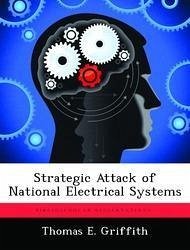The United States Air Force has long favored attacking electrical power systems.Electric power has been considered a critical target in every war since World War II,and will likely be nominated in the future. Despite the frequency of attacks on thistarget system there has also been recurring failure in understanding how power isused in a nation. In addition, air planners tend to become enamored with the vulnerability of electric power to air strikes, but analysis of the cause and effect relation-ships indicates that attacking electrical power does not achieve the stated objectivesin terms of winning the war. Historically, there have been four basic strategiesbehind attacks on national electrical systems: to cause a decline in civilian morale; toinflict costs on the political leaders to induce a change; to hamper military operations; and to hinder war production. The evidence shows that the only sound reasonfor attacking electrical power is to effect the production of war material in a war ofattrition against a self-supporting nation-state without outside assistance. The implication for future strategic air operations is important. Because attacks on electricpower cause indirect collateral damage which can be politically counterproductive,and the military benefit is minimal, the United States should reject attacks onnational electrical power systems in the near future.
Hinweis: Dieser Artikel kann nur an eine deutsche Lieferadresse ausgeliefert werden.
Hinweis: Dieser Artikel kann nur an eine deutsche Lieferadresse ausgeliefert werden.








